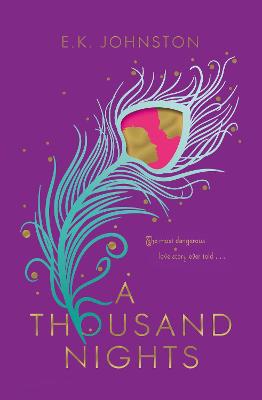Reviewed by girlinthepages on
As a religious studies major in college, the first thing that resonated with me is how the book read much more like historical fiction, calling upon seemingly realistic details to build its setting (I cannot vouch for its true authenticity, as I have not done any research into the culture/archaeology of the time and place where it is set). Family traditions and history play a huge role in the plot, as well as discussing rites of passage throughout the whole novel, an integral part of religious studies theory. Funeral rites, wedding rites, birthing rites, mourning rites, and more are not only mentioned but woven into the fabric of the tale, and I was astounded about how culturally nuanced this fantasy novel was until I discovered that the author herself is a trained archaeologist. Then things started making sense- how detailed the world is, how important rites of passage and daily rituals are to the characters, and how the storytelling felt reminiscent of a biblical or other religious story. Religious Studies scholars are often anthropologists and archaeologists of the Ancient Near East, studying the time and places and people that the religions are based upon, and I wouldn't be surprised if E.K. Johnston has done hands on research into the culture of ancient Eastern cultures herself in preparing to write this book.
Reading the Bible and other religious texts from several worldwide traditions through an anthropological and literary lens, there are certain trends that become apparent, and one of those is that of an unnamed heroine. Female biblical figures will often go unnamed yet do great actions or suffer great tragedies that are integral to a setting in motion a larger series of events. A Thousand Nights follows this pattern of ancient storytelling, keeping every single character unnamed except Lo-Melkhiin. We never even learn the protagonist's name, yet it does not diminish her strength as a character- rather it reinforces it as something as sacred and personal as a name is never shared with the reader, and yet we come to intimately know her thoughts all the same.
A Thousand Nights also featured strong feminist themes for me as a reader. Aside from the obvious connection of the protagonist being a strong female character who holds her own against a demon-king, there were many elements to the story and society that were matriarchal and focused on the importance of the female role in the community. Examples include only females in the protagonist's community could perform priestly rites and interact with the dead, Lo-Melkhiin's mother's strong association and connection with lions, and the focus on the daily household rituals, such as food making and weaving cloth, that provided stability for the caravan community and developed important bonds between caravans. I was impressed to see a story that in its description seems so problematic (a king who has killed over 300 brides) place so much importance on the female's role in the community and the agency the domestic and priestly rites afforded to only women.
When I tear my mind away from critically analyzing this book from a literary perspective, there were definitely some aspects that did and did not work for me. Though it was lyrical and purposeful in its execution, it could be extremely slow at some parts, with many quiet moments and personal introspection and nostalgia from the narrator. The narrator's chapters were prefaced by an all-italicized portion that was supposedly from the "demon" in possession of Lo'Melkhiin, and in my opinion that decision gave the novel a slight feeling of telling over showing. There is also very little romance in this story, although it seems to be marketed with a romantic emphasis, which ultimately didn't bother me much but may be a disappointment to readers expecting a love-based plot.
Overall: A Thousand Nights was not what I was expecting, but mostly in a good way. Written in a literary style that foregoes several "normal" conventions like character naming, the book focuses heavily on the female role in caravan communities and the family structure, as well as the strength of bonds between females rather than in a romantic relationship. This book can drag on, and the action sequence at the end felt rushed and crammed in, but ultimately this book was a more subtle approach to the rich world of Eastern retellings, and it's made me crave more (Any suggestions?!)This review was originally posted on Girl in the Pages
Reading updates
- Started reading
- 19 October, 2015: Finished reading
- 19 October, 2015: Reviewed
